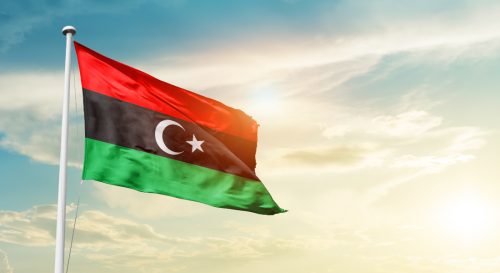
Gulf Cooperation Council keeps steady course for unitary trademark system
The harmonisation of intellectual property laws has been a long-standing project for the six Gulf Cooperation Council (hereinafter GCC) states. Attentions are focused on when the law will come into force.
The six countries that form the GCC (Bahrain, Kuwait, Oman, Qatar, Saudi Arabia and the United Arab Emirates) have been harmonising a trademark law since the 1980s. Several other concepts have been drafted during the following years, but none has actually been enforced.
Implementing legislation on a regional basis requires an agreed structure between relevant sovereign states. Article 52 of the GCC Trademark Law sets out the need for implementing regulations to be prepared and provides that the Commercial Cooperation Committee (a division of the GCC General Secretariat) is responsible for issuing these regulations.
The drafting of the implementing regulations is apparently in its final stage, with the regulations expected to be ready for publication in early 2016. Once published, the national law of each GCC state will need to be reviewed in order to confirm when the GCC Trademark Law will come into effect and in what form. The position of each state is as follows.
Bahrain
Law 6/2014 (issued on February 17 2014) ratified the GCC Trademark Law and provides that it will come into force six months after the issuance of the implementing regulations. The existing Trademark Law in Bahrain (Law 11/2006) will be repealed when the GCC Trademark Law comes into force.
Accordingly, the GCC Trademark Law will come into force automatically and without amendment six months after the implementing regulations are issued.
Kuwait
Law 13/2015 (issued on March 11 2015) ratified the GCC Trademark Law in Kuwait. Law 13/2015 came into force immediately and repealed any provisions within the existing legislation which contradicted the GCC Trademark Law. However, the law also envisages that the minister of trade and industry will issue implementing regulations in accordance with the GCC Trademark Law.
Once the implementing regulations have been published in the GCC Official Gazette, the minister of trade and industry will likely issue corresponding implementing regulations at the national level in order to bring the GCC Trademark Law into force in Kuwait within six months.
Law 13/2015 also anticipates the payment of official fees and fines under the GCC Trademark Law in local currency (Kuwait dinars) rather than in Saudi riyals (as set out in the GCC Trademark Law).
Qatar
Law 7/2014 (issued on June 8 2014) provides that the GCC Trademark Law will automatically come into force in Qatar six months after the issuance of the implementing regulations.
In addition, Law 7/2014 repealed Law 18/2007 (which ratified the 2006 version of the GCC Trademark Law). Law 7/2014 also states that provisions that contravene the GCC Trademark Law will be repealed, although no specific mention is made of Law 9/2002, which deals with trademarks, trade names, geographical indications and industrial designs.
It therefore remains to be seen whether Qatar will at some stage repeal specific provisions of Law 9/2002 in order to avoid potential disputes as to whether a provision has been repealed on the basis that it contravenes the GCC Trademark Law or whether it is still in force.
Interestingly, a copy of the GCC Trademark Law is attached to Law 7/2014. This differs from the implementing regulations in Bahrain and Kuwait, which refer to the GCC Trademark Law as published in the GCC Official Gazette. In practice, the result is the same (i.e., all countries have adopted the same version of the GCC Trademark Law), but the mechanism used is slightly different.
Saudi Arabia
Royal Decree M/94 (issued on May 23 2014) states that the cabinet agrees to ratify the GCC Trademark Law and that a royal decree has been drafted (but not published) in order to complete the ratification process.
Royal Decree M/94 does not specify:
- When the GCC Trademark Law will be implemented;
- Whether it will be implemented without amendment;
- How implementation of the GCC Trademark Law will affect existing conflicting Saudi laws.
In addition, no mention is made of repealing Saudi Arabia's existing Trademark Law.
As such, further legislation is likely to be enacted in due course in order to enable the GCC Trademark Law to come into force and repeal the existing Trademark Law.
Oman and United Arab Emirates
Neither Oman nor the United Arab Emirates has published any legislation with regard to the 2013 version of the GCC Trademark Law. It therefore remains to be seen how and when the GCC Trademark Law will be implemented in these states.
In summary, if all goes as planned, the implementing regulations will be published in early 2016. If this fact materialises, the GCC Trademark Law should come into force six months later, in the second half of the year.
Some minor setbacks are expected due to each country’s individual necessity. With further legislation pending in Oman, Saudi Arabia and the United Arab Emirates, it is not yet possible to assess whether there will be any significant local variations to the GCC Trademark Law as it applies in each state. However, it is clear that the version of GCC Trademark Law published in the GCC Official Gazette cannot be relied on to confirm each state's position without looking at national legislation in order to identify any variations which apply at the country level.
Currency Info
Final charges will be made in USD.
Currency conversion is for information purposes only and accuracy is not guaranteed. Overseas customers are encouraged to contact their bank or credit card provider for details on any additional fees these institutions may include for currency conversion.
Territory List
There are no results for your search.
- Africa
- Algeria
- Angola
- Benin
- Botswana
- Burkina Faso
- Burundi
- Cameroon
- Cape Verde
- Central African Republic
- Chad
- Comoros
- Congo (Republic)
- Côte d'Ivoire
- Democratic Republic of the Congo
- Djibouti
- Egypt
- Equatorial Guinea
- Eritrea
- Eswatini (Swaziland)
- Ethiopia
- Gabon
- Gambia
- Ghana
- Guinea
- Guinea-Bissau
- Kenya
- Lesotho
- Liberia
- Libya
- Madagascar
- Malawi
- Mali
- Mauritania
- Mauritius
- Mayotte
- Morocco
- Mozambique
- Namibia
- Niger
- Nigeria
- Réunion
- Rwanda
- Sao Tome and Principe
- Senegal
- Seychelles
- Sierra Leone
- Somalia
- South Africa
- South Sudan
- Sudan
- Tanzania (mainland)
- Togo
- Tunisia
- Uganda
- Western Sahara
- Zambia
- Zanzibar
- Zimbabwe
- Africa (OAPI)
- Africa (ARIPO)
- Other
- East Timor
- Macao
- Maldives
- Portugal
- European Patent (EPO)
- European Union Trademark (EUTM)
- International Trademark (Madrid System)
- Patent Cooperation Treaty (PCT)




